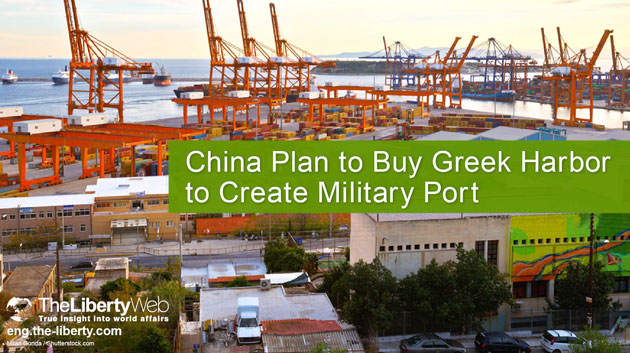... with monopoly money backed by slave labor.
***Article first published by 'Washington Examiner' on Oct. 26, 2018***
Chinese President Xi Jinping is trying to buy an “empire” through predatory loans to poor countries around the world, according to the top U.S. diplomat.
“When China shows up with bribes to senior leaders in countries in exchange for infrastructure projects that will harm the people of that nation, then this idea of a treasury-run empire build is something that I think would be bad for each of those countries and certainly presents risk to American interests,” Secretary of State Mike Pompeo told talk radio host Hugh Hewitt. “We intend to oppose them at every turn.”
Xi has made a “Belt and Road Initiative” — infrastructure investments on land and at sea all around the world — a central theme of his foreign policy in recent years. U.S. officials perceive the construction as a platform for the communist regime to project power around the world, especially as China gains control of strategically-located ports and railways. Beijing defends the spending as ‘win-win’ investments in locales that are not drawing Western financing.
“The U.S. has fabricated lies time and again and made irresponsible remarks out of its political needs, which is very disappointing,” Foreign Ministry spokesman Lu Kang said during a recent press briefing. ”The relevant country, if it had failed to serve that hope, should at least refrain from obstructing assistance provided to these developing countries by others or even serving its political ends at the cost of the benefits of the people of developing countries.”
Western officials maintain that China is engaged in predatory lending in order to gain sovereignty over the infrastructure projects when the impoverished countries fail to repay the debts. China famously financed the construction of a port in Sri Lanka, an island just south of India in the center of the Indo-Pacific region, and then took control of the facility when the island government defaulted.
The port was a “white elephant” project with little commercial value, according to U.S. officials, but the Chinese military has found it useful and could be looking at similar plays even in the Western Hemisphere.
“They're positioning themselves in all the different ports — in the Straits of Malacca, in the South China Sea,” said Rep. Ted Yoho, R-Fla., who chairs the Foreign Affairs Subcommittee on Asia and the Pacific and also sits on the subcommittee for the Western Hemisphere. “Then you bolster that up with ships in El Salvador, possible ships in Cuba, possible ships in Haiti. ... I think it’s a big cause for concern.”
Pompeo is helping to lead a Trump administration effort to counteract the Belt and Road Initiative by facilitating private-sector investment, instead of trying to match China dollar-for-dollar.
“No government, no combination of governments, has that kind of money — only the private sector does,” he said in July. “And only if countries make themselves welcoming to private investment will those trillions of dollars get off the sidelines, into their economies, and into productive enterprises that bring jobs and prosperity to their peoples.”
The Overseas Private Investment Corporation is a key part of that effort, with an early focus on India, where the U.S. agency launched a venture capital program on Wednesday and pledged $125 million to a private sector fund that will support medium-sized businesses. The United States, under Trump and former President Barack Obama, has prioritized U.S.-India relations as a potential counterweight to China; the growing partnership represents a shift from India’s Cold War era policy of “non-alignment” with any superpower.
“Non-alignment is not true in Asia today,” Rick Rossow, an India expert at the Center for Strategic and International Studies, told the Washington Examiner. “You look across the Indian Ocean region, China's there . . . India sees it.”
But China’s cash investments have paid dividends elsewhere, particularly through recent efforts to convince Latin American nations to cut diplomatic ties with Taiwan. Beijing claims Taiwan as part of mainland China, though the island’s democratic government is the last bastion of the government overthrown during China’s communist revolution.
“I’m confident the people of El Salvador will feel the warmth and friendship of the Chinese people and derive tangible benefits from its cooperation with China,” Chinese Foreign Minister Wang Yi said in August.
